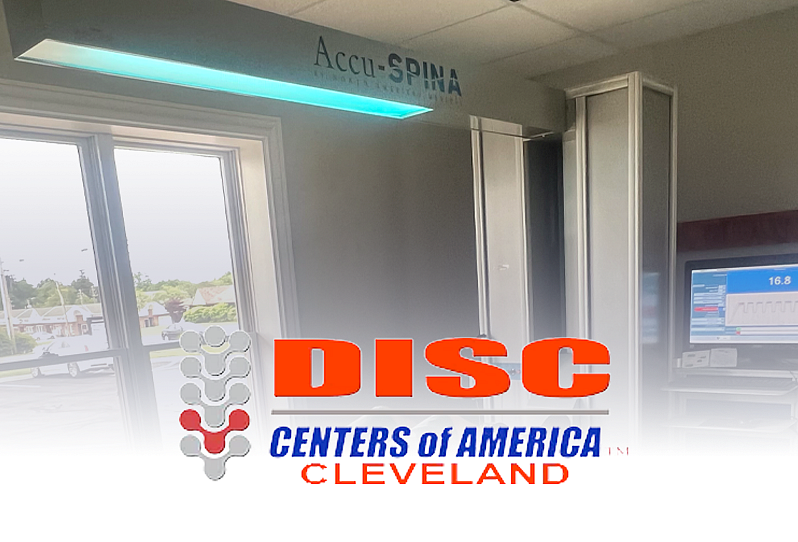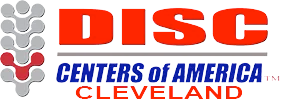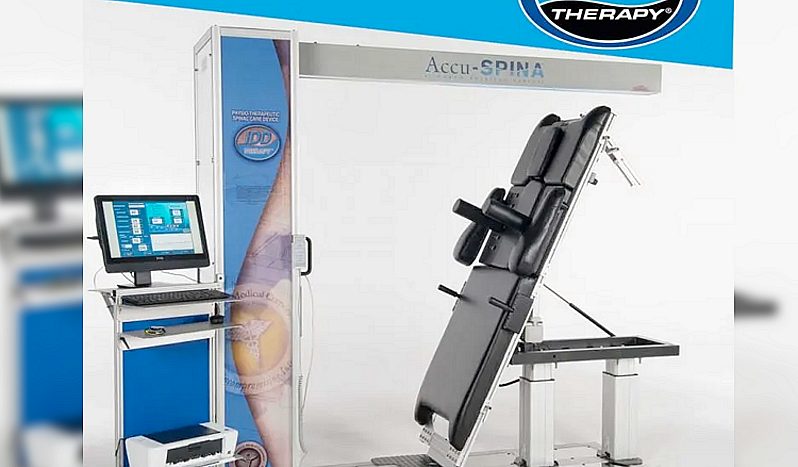Blog
Spinal Decompression vs. Surgery: Which Is Right for You?

When back or neck pain becomes unbearable, many people feel trapped between two options—live with the pain or have surgery. But what if there was a third path that allowed your body to heal naturally, without the risks or recovery time of an operation? For patients in Cleveland, Ohio, Cleveland Disc Centers of America offers that option through non-surgical spinal decompression therapy.
Using the advanced AccuSpina decompression system, Dr. Roger Huang and his team have helped countless patients find lasting relief from herniated discs, sciatica, and chronic spinal pain—without surgery. Here’s what you need to know when comparing spinal decompression vs. surgery.
The Goal of Both Treatments: Relieve Pressure and Pain
Most back and neck pain originates from spinal compression. Over time, your discs—soft cushions between vertebrae—can become dehydrated, herniated, or collapsed. This creates pressure on surrounding nerves, causing pain, numbness, and inflammation.
Both spinal decompression and surgery aim to relieve that pressure and restore function. The key difference lies in how they do it—and what happens afterward.
What Happens During Spinal Decompression
Spinal decompression therapy is a non-invasive treatment that gently stretches the spine using computer-guided technology. The AccuSpina system precisely targets the affected discs, applying controlled traction to relieve pressure and create space for healing.
As negative pressure forms inside the discs, nutrients, oxygen, and fluids are drawn back in—allowing damaged tissue to rehydrate and repair naturally. The process is safe, comfortable, and free of anesthesia or incisions. Most patients experience deep relaxation during each 30-minute session.
What Happens During Spinal Surgery
Spinal surgery typically involves cutting or removing tissue to relieve nerve compression. Common procedures include:
- Discectomy: Removing a portion of a herniated disc pressing on a nerve.
- Laminectomy: Removing bone or tissue to enlarge the spinal canal.
- Spinal fusion: Fusing two or more vertebrae together to stabilize the spine.
While these surgeries can relieve pressure, they also carry risks such as infection, scar tissue formation, blood clots, or failed back surgery syndrome (FBSS)—a condition where pain persists or worsens after surgery. Recovery often takes months, with limited mobility and physical restrictions.
Comparing the Two: Spinal Decompression vs. Surgery
| Aspect | Spinal Decompression | Spinal Surgery |
|---|---|---|
| Invasiveness | Completely non-surgical and drug-free | Involves incisions, anesthesia, and possible tissue removal |
| Recovery Time | No downtime—resume daily activities immediately | Weeks or months of limited activity and rehab |
| Risk Level | Minimal risk of side effects | Risk of infection, nerve injury, or failed surgery |
| Focus | Restores disc health and spinal alignment naturally | Removes or fuses tissue to relieve symptoms |
| Cost | Significantly lower than surgical procedures | High cost due to hospital fees, anesthesia, and recovery |
When Surgery Might Be Necessary
While non-surgical decompression can help most patients with disc or nerve-related back pain, there are rare cases where surgery may be unavoidable. This includes severe spinal instability, fractures, tumors, or progressive neurological damage. Even then, decompression therapy can often complement recovery or serve as a pre-surgical alternative to delay or avoid surgery altogether.
When Spinal Decompression Is the Better Choice
For the majority of patients with chronic back or neck pain, spinal decompression provides long-term benefits without the risks. It’s ideal for conditions like:
- Herniated or bulging discs
- Degenerative disc disease
- Spinal stenosis
- Sciatica and pinched nerves
- Chronic muscle tightness or inflammation
Because decompression restores disc height and hydration, it addresses the root cause of pain instead of just removing tissue or stabilizing the spine.
The Role of AccuSpina in Modern Spine Care
At Cleveland Disc Centers of America, we use the AccuSpina system—the gold standard in spinal decompression technology. Its intelligent feedback loop continuously monitors muscle tension and adjusts traction levels in real time, ensuring a comfortable, precise, and effective treatment.
Each session gently releases pressure on damaged discs, reduces inflammation, and restores circulation to promote healing. Patients often describe the experience as relaxing and even therapeutic, with improvements in movement and pain relief after just a few sessions.
Patient Success Stories in Cleveland
Patients who once faced surgery are now walking, exercising, and living pain-free thanks to decompression therapy. Many report significant pain reduction, improved flexibility, and better posture—all without missing work or enduring post-surgical limitations.
By focusing on natural healing and structural correction, decompression therapy provides sustainable, long-term results that surgery often cannot match.
Making the Right Choice for Your Spine
Deciding between decompression and surgery can feel overwhelming, but you don’t have to decide alone. Dr. Roger Huang and his experienced team will review your MRI or imaging, evaluate your condition, and determine whether you’re an ideal candidate for decompression therapy.
For many patients, this non-surgical path offers the same relief surgery promises—without the risk or recovery. And in the rare case that surgery is necessary, decompression can still play a vital role in rehabilitation and long-term maintenance.
Take the Next Step Toward Pain-Free Living
You deserve relief that lasts. Whether you’ve been struggling with herniated discs, sciatica, or chronic back pain, the team at Cleveland Disc Centers of America is here to help. Discover how AccuSpina spinal decompression can restore your mobility and eliminate pain naturally.
Schedule your consultation today and learn how you can avoid surgery while achieving real, long-term results through non-surgical decompression therapy.
Looking for more resources on spinal health and treatment options? Visit our blog for expert insights, patient success stories, and the latest updates on back pain solutions in Cleveland.
‹ Back









 2794 Som Center Road
2794 Som Center Road
